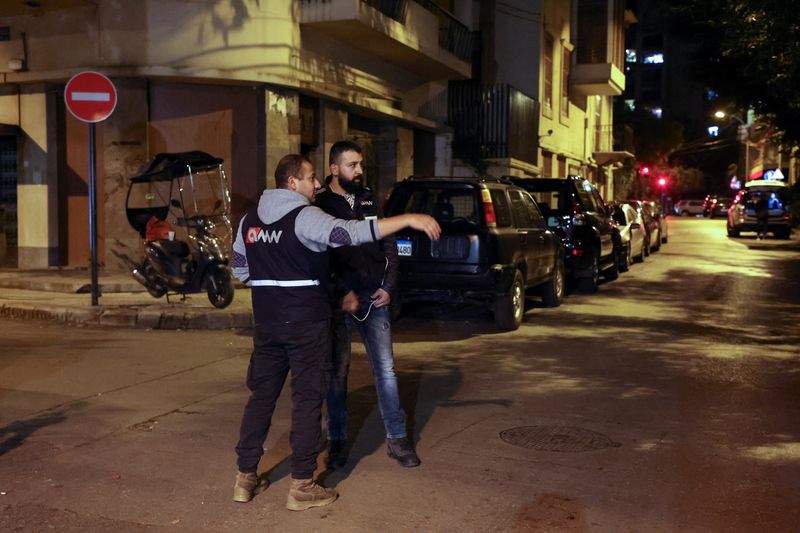Lebanon-people police themselves
2022.11.27 01:23
[ad_1]

Lebanon-people police themselves
Budrigannews.com – Men with batons and torches are taking security into their own hands in the dark streets of Beirut. They hope this will keep neighborhoods safe, but critics see it as a worrying reminder of Lebanon’s troubled past.
The latest symptom of the crisis that has afflicted Lebanon since its economy collapsed in 2019, paralyzing a large portion of the state and fueling poverty in the worst shock since the 1975-1990 civil war, is the neighborhood watch, which was launched earlier this month in some of Beirut’s most salubrious streets.
To allies of the plan – the possibility of Christian lawmaker Nadim Gemayel and coordinated by a common society bunch he established – the men conveyed in the city’s Ashrafieh region offer consolation to occupants stressed over wrongdoing.
However, their appearance has been compared by critics to the civil war, when Beirut was divided into cantons, the state was overthrown, and militias ruled the streets.The mayor has expressed concern that it might inspire other people to do the same.
Gemayel, a member of the Kataeb Party whose father, Bashir, was the head of the main Christian militia during the civil war and was assassinated in 1982 after being elected president, rejects these criticisms.
He said, referring to the Iran-backed, heavily armed Shi’ite organization Hezbollah, “We are not a militia, we are not armed, we don’t have rockets or drones.”
He stated, describing the state as “absent,” as “the big problem we are suffering today in Beirut and all of Lebanon is that there’s no electricity, there’s no security, there’s no feeling of reassurance, and all the streets are dark.”
He stated, “If they had done their duty and lit the streets, we would not have been forced to light the streets.” Additionally, “if they… had not allowed the country to collapse, we would not be forced today to stand in the streets to reassure our people.”
Gemayel stated that the initiative, which currently has 98 recruits, was launched in conjunction with the security services and aimed to complement their work. He added that the crisis was creating a manpower shortage for the security forces.
Like the rest of the state, the security services in Lebanon have been severely affected by a 95 percent currency collapse, which has reduced the value of the wages paid to soldiers and police.
They are receiving assistance from the United States, including salary support.
A request for clarification was made, but a spokesperson for the Internal Security Forces (ISF) did not respond.
Crimes like armed robberies, carjackings, bag snatchings, and thefts of internet and telephone cables have increased as a result of the crisis.
However, General Joseph Aoun, the head of the army, stated that the army, which is the foundation of civil peace in Lebanon, was able to maintain order.He stated, “We have not previously accepted any violation of security and stability, and we will not accept it today.” The security situation is under control.
Jamal Itani, mayor of Beirut, stated that he learned about the initiative from the media and was concerned that it might exacerbate tensions.
According to what he told Reuters, “Say they catch a thief from one party or people intervene with guns, then things could get out of hand.”
“My second concern is that other areas will also request this, and then each area will have a group responsible for managing security in their area,”
Except for Hezbollah, which retained its arsenal to fight Israel, the sectarian parties in Lebanon disarmed at the conclusion of the war.In a nation with a lot of guns, tensions are common and their pervasive influence is always visible.
Last year, rival groups’ supporters engaged in bloody brawls in Beirut. The Carnegie Middle East Center’s Mohanad Hage Ali said that the initiative was a clear example of security being organized locally under a political umbrella. He also said that this trend had started earlier in the crisis and was happening less clearly elsewhere.
He added that those who could afford it would increasingly enjoy security, similar to electricity.
Gemayel stated that local donors provided the funding, and a security company managed the logistics.Initiates procure $200 per month for a six-hour shift – truly necessary pay for some.
[ad_2]








